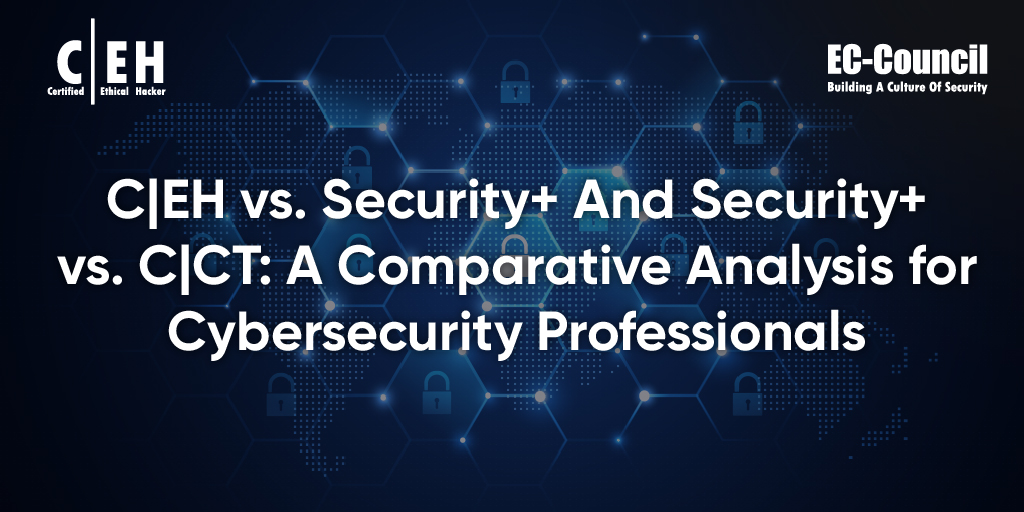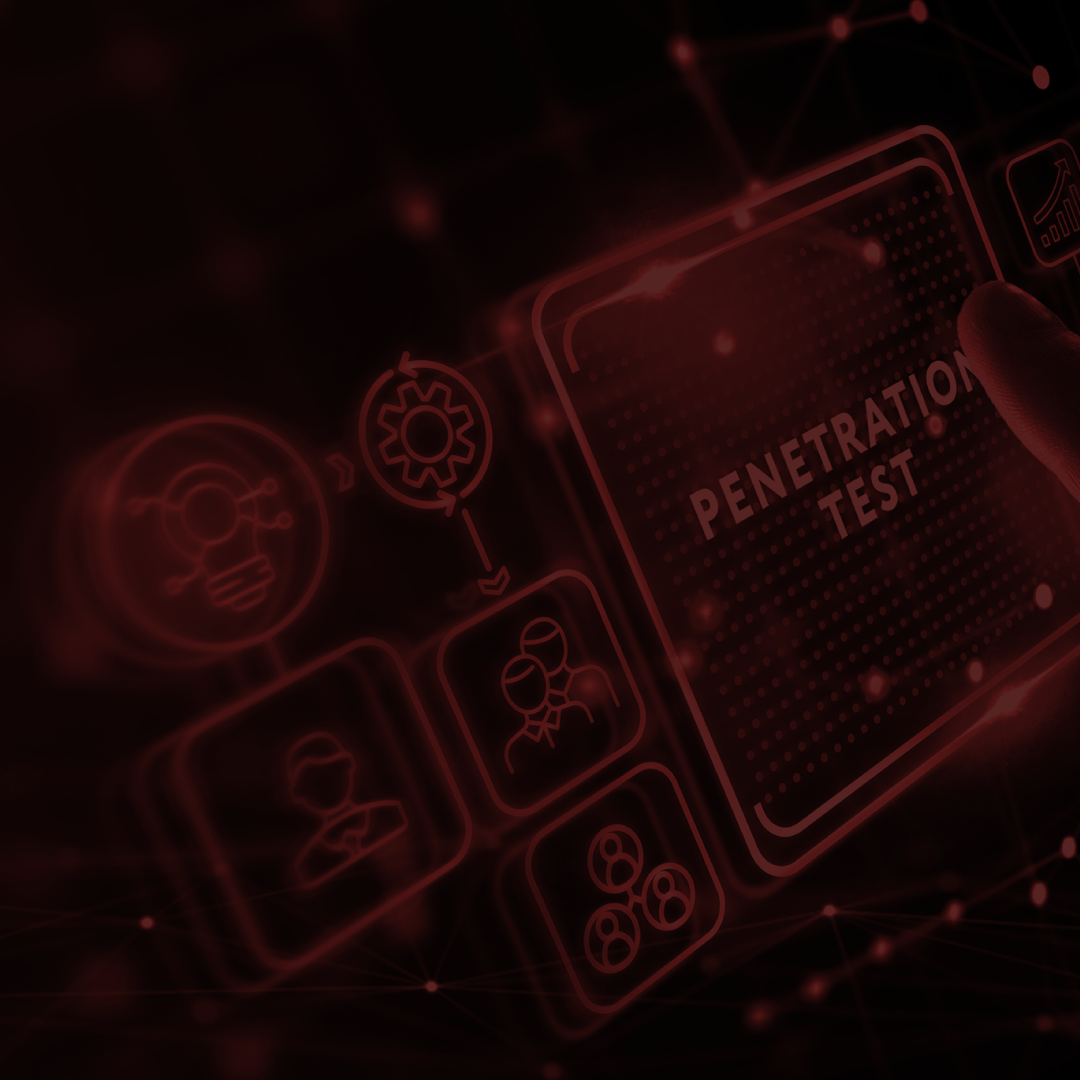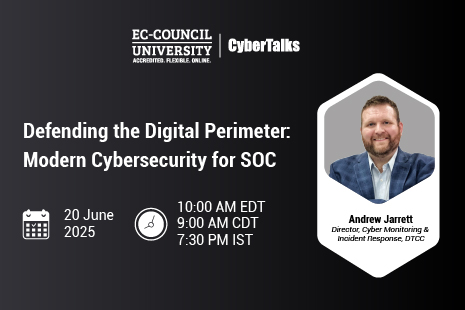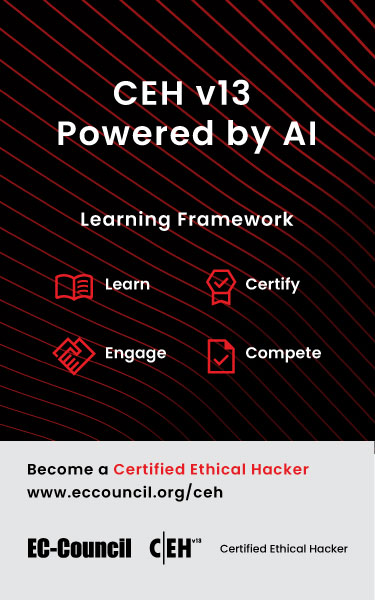While the demand for cybersecurity professionals is soaring, employers prefer candidates with in-depth knowledge and the skills to efficiently address the evolving cyber threats. In a field that is so competitive and rewarding at the same time, attaining the right set of skills is essential to shaping a successful career trajectory. According to a survey from Statista (2023), 47% of the respondents said that obtaining cybersecurity certifications ensured higher salaries for professionals. Furhermore, training through certifications helps candidates stay up to date on the latest developments and build practical, in-demand skills in sync with the latest cybersecurity developments. By obtaining the right certifications from recognized institutions, candidates can prove their credibility and gain a competitive edge in the market.
In this blog, candidates who want to pursue or advance their careers in cybersecurity will gain a comprehensive understanding of the offerings of popular certifications such as the C|EH, C|CT, and Security+ and gain insights from comparative analysis between the C|EH vs. Security+ and the C|CT vs. Security+.
CEH vs Security+
EC-Council’s Certified Ethical Hacker (C|EH), the World’s No. 1 Ethical Hacking Certification, equips learners with the core skills required to become successful ethical hackers and enables them to efficiently safeguard digital systems and combat cyber threats. Its unique learning framework, i.e., learn-certify-engage-compete, caters to the holistic development of ethical hackers. Security+, offered by CompTIA, is an entry-level certification covering primary information security topics. It is a foundational program that equips individuals with baseline skills to pursue a career in IT security.
While the CEH and CompTIA Security+ are highly recognized certifications, they have a distinct focus and target different career paths.
C|EH Program Overview: The C|EH is a detailed and comprehensive program focusing on core ethical hacking skills with hands-on learning to help individuals uncover vulnerabilities and provide remediation measures by thinking from a hacker’s perspective. The curriculum, split 50/50 between knowledge-based training and hands-on application, exposes learners to the latest tools, techniques, and methodologies to tackle evolving cyber threats. Candidates pursuing the C|EH will learn foundational concepts and advanced topics like IoT hacking, cloud computing, cryptography, and more. An intermediary program, the C|EH offers candidates deep knowledge and practical exposure to real-world scenarios to advance their careers with cutting-edge, in-demand skills.
Sec+ Program Overview: Security+, on the other hand, is a beginner-level credential that aspiring cyber professionals may choose to create a foundation in cybersecurity and equip themselves with the skills required to begin a career in this field. This cybersecurity program helps career starters take the first step to entering the world of cybersecurity. Below is a detailed analysis of CompTIA Security+ vs CEH, which will offer candidates critical insights into the offerings and scope of these certifications, enabling them to choose the best one that fits their career aspirations and requirements.
CompTIA Security+ vs CEH: What Skills Will You Learn?
C|EH: The detailed course outline of the C|EH program will help you learn the following:
- Introduction to Ethical Hacking: The basics of ethical hacking, information security controls, relevant laws, and standard procedures
- Foot Printing and Reconnaissance: Learn how to use the latest techniques and tools to perform foot printing and reconnaissance
- Scanning Networks: The different network scanning techniques and countermeasures
- Enumeration: Learn various enumeration techniques, such as Border Gateway Protocol (BGP) and Network File Sharing (NFS) exploits and associated countermeasures
- Vulnerability Analysis: Learn how to identifying security loopholes in a target organization’s network, communication infrastructure, and end systems, as well as the different types of vulnerability assessments and tools
- System Hacking: Learn about the various system hacking methodologies—including steganography, steganalysis attacks, and covering tracks—used to discover system and network vulnerabilities
- Malware: Learn different types of malware, APT and fileless malware, malware analysis procedure, and malware countermeasures.
- Sniffing: Learn about Packet-sniffing techniques, how to use them to discover network vulnerabilities, and countermeasures to defend against sniffing attacks.
- Social Engineering: Learn social engineering concepts and techniques, how to identify theft attempts, audit human-level vulnerabilities, and suggest social engineering countermeasures.
- Denial-of-Service: Learn about different Denial of Service (DoS) and Distributed DoS (DdoS) attack techniques, as well as the tools used to audit a target and devise DoS and DdoS countermeasures and protections.
- Session Hijacking: Understand the various session hijacking techniques used to discover network-level session management, authentication, authorization, cryptographic weaknesses, and associated countermeasures.
- Firewall, intrusion detection system (IDS), and honeypot evasion techniques; the tools used to audit a network perimeter for weaknesses; and countermeasures.
- Hacking Web Servers: Learn about web server attacks, including a comprehensive attack methodology used to audit vulnerabilities in web server infrastructures and countermeasures.
- Hacking Web Applications: Learn about Web application attacks, including a comprehensive web application hacking methodology used to audit vulnerabilities in web applications and countermeasures.
- SQL Injection: Learn about SQL injection attack techniques, evasion techniques, and SQL injection countermeasures
- Hacking Wireless Networks: Learn about wWireless encryption, wireless hacking methodologies, tools, and Wi-fi security controls.
- Hacking Mobile Platforms: Learn about mMobile platform attack vectors, Android vulnerability exploits, and mobile security guidelines and tools.
- IoT and OT Hacking: Learn about packet-sniffing techniques and how to use them to discover network vulnerabilities, as well as countermeasures to defend against sniffing attacks.
- Cloud Computing: Learn different cloud computing concepts, such as container technologies and serverless computing, various cloud computing threats, attacks, hacking methodology, and cloud security techniques and tools.
- Cryptography: Learn about Cryptography and ciphers, public-key infrastructure, cryptography attacks, and cryptanalysis tools
CompTIA Security+ :Candidates pursuing the Security+ program will get trained in the following:
- Mitigating security threats and vulnerabilities arising from newer custom devices (e.g., IoT and embedded systems) and handling evolving DDoS and social engineering attacks based on present-day developments.
- Helping enterprises design their cloud computing architecture as they increasingly rely on the cloud and shift to hybrid networks.
- Effective implementation of security measures, i.e., identity and access management (IAM), PKI, basic cryptography, wireless, and end-to-end security
- Assessing organizational security assessment and incident response procedures — fundamental threat detection processes, risk mitigation techniques, security controls, and basic digital forensics
- Familiarity with organizational risk management and regulatory standards (PCI-DSS, SOX, HIPAA, GDPR, FISMA, NIST, and CCPA)
The above analysis of C|EH vs. Security+ shows that the skills learned in each course are unique and equip candidates for different career tracks in cybersecurity. While Security+ offers an understanding of basic concepts and helps individuals take the foundational step in starting their careers, the C|EH offers comprehensive learning and exceptional skill development to build and grow in ethical hacking careers.
CEH vs CompTIA Security+: Job Roles
| Job roles Mapped to C|EH | Job Roles Mapped to Security+ | |
|---|---|---|
| 1. Mid-Level Information Security Auditor | 26. Cyber Delivery Manager | 1. Business Analyst |
| 2. Cybersecurity Auditor | 27. Application Security Risk | 2. Cybersecurity Manager |
| 3. Security Administrator | 28. Threat Modelling Specialist | 3. Software Developer |
| 4. IT Security Administrator | 29. Web Application Penetration Testing | 4. Systems Administrator |
| 5. Information Security Analyst 1 | 30. SAP Vulnerability Management- Solution Delivery Advisor | 5. MSP Personnel |
| 6. Infosec Security Administrator | 31. Ethical Hacker | 6. Security Consultant |
| 7. Cybersecurity Analyst (Level 1, Level 2, & Level 3) | 32. SIEM Threat Responder | *As seen on the CompTIA website |
| 8. Network Security Engineer | 33. Product Security Engineer / Manager | |
| 9. SOC Security Analyst | 34. Endpoint Security Engineer | |
| 10. Network Engineer | 35. Cybersecurity Instructor | |
| 11. Senior Security Consultant | 36. Red Team Specialist | |
| 12. Information Security Manager | 37. Data Protection & Privacy Officer | |
| 13. Senior SOC Analyst | 38. SOAR Engineer | |
| 14. Solution Architect | 39. AI Security Engineer | |
| 15. Cybersecurity Consultant | 40. Sr. IAM Engineer | |
| 16. Cyber Defense Analyst | 41. PCI Security Advisor | |
| 17. Vulnerability Assessment Analyst | 42. Exploitation Analyst (EA) | |
| 18. Warning Analyst | 43. Zero Trust Solutions Engineer / Analyst | |
| 19. All-Source Analyst | 44. Cryptographic Engineer | |
| 20. Cyber Defense Incident Responder | 45. AI/ML Security Engineer | |
| 21. Research & Development Specialist | 46. Machine Learning Security Specialist | |
| 22. Senior Cloud Security Analyst | 47. AI Penetration Tester | |
| 23. Third Party Risk Management | 48. AI/ ML Security Consultant | |
| 24. Threat Hunting Analyst | 49. Crypto Security Consultant | |
| 25. Penetration Tester |
CEH vs Security+: Course Offerings
The below table offers a comparative analysis of the offerings between CEH vs Security+ cybersecurity programs:
| Course Offerings | C|EH | Security+ |
|---|---|---|
| Hands-On Labs | 220 | 30+ |
| CTF Challenges | Yes | No |
| Monthly Global Challenges | Yes | No |
| 6 hr. Practical Exam | Yes | No |
| 3500+ Hacking tools | Yes | No |
| 519 Attack Techniques | Yes | No |
| Mock Assignment Range | Ethical Hacking Mock Assignment Rage | No |
| Ethical Hacking Cheat Sheets | Yes | No |
| Student Manual Pages | 2600 + 1900 Lab Manual Pages | 300 |
| AI Techniques in 5 phases of ethical hacking | Yes | No |
| AI Tools | Yes | No |
The above comparison between Certified Ethical Hacker vs. Security+ shows C|EH’s comprehensive training in dealing with real-world challenges. With extensive exposure to lab-based learning, CTF challenges, and mock ethical hacking engagements, the C|EH course helps candidates to excel with industry-leading practical competence. The C|EH is an intermediate-level comprehensive certification recommended for every cybersecurity professional wanting to scale their cybersecurity career.
Security+ is an entry-level cybersecurity certification that helps aspiring professionals gain the preliminary expertise to land a job. Choosing between C|EH vs. CompTIA Security+ will depend on a candidate’s career goals, interests, proficiency in job-ready skills, and specific domain of interest.
Which is the Best Entry-level Certification for You?
If you are an aspiring cybersecurity professional wanting to begin your career, building the foundation with an entry-level cybersecurity certification will be an excellent option to demonstrate your competence to prospective employers. While C|CT and Security+ are highly sought-after entry-level certifications, they come with unique offerings.
C|CT vs. Security+
EC-Council’s Certified Cybersecurity Technician (C|CT) is the only program that offers multi-disciplinary learning in network defense, ethical hacking, digital forensics, and security operations. The world’s only baseline training program to train through 85 hands-on labs, the C|CT program focuses on skill development by exposing candidates to real-world task scenarios. A recent study reveals that hands-on cybersecurity experience plays a crucial role in determining a candidate’s eligibility for a cybersecurity job role (Statista, 2023). With comprehensive and detailed understanding, students build a strong foundation in cybersecurity principles and techniques and enhance their eligibility for a wide range of job roles such as SOC Analyst, IT Manager, Cybersecurity Technician, and more. Compared to Security+, C|CT includes more topics and labs beyond Security+.
Below is a detailed analysis of C|CT vs. Security+ to help candidates gain a clear understanding of the courses and critically ascertain the key USPs before choosing one.
C|CT vs Security+: Course Offerings
| C|CT | Security + | Conclusion |
|---|---|---|
| 85 labs | 32 labs | Lab Intensive: With over 2X labs, C|CT is a more immersive hands-on course. |
| C|CT covers all modules of Sec+ and 1000+ more topics | C|CT covers all topics of Security+ | Builds Technical Skills: C|CT covers a wide range of fundamental topics related to cybersecurity, making you job ready with hands-on technical skills. |
| C|CT provides a realistic, practical exam. Students will access live machines and networks. | Security+ provides 4 to 5 simulations in their exam to mimic hands-on practicals. | Real World Practical Exam: C|CT focuses on real-life security challenges and job skills required for security technicians. |
| C|CT has 2,400 pages of content, including nearly 900 pages of detailed Lab guides. | The entire course of Security+ is a little over 300 pages of content. | Content on Emerging Threats: C|CT can prepare you for other fundamental courses such as Security+. |
| Covers threat sources, threat actors/agents, malware and its types, vulnerabilities, hacking methodologies, and frameworks. |
Limited coverage of emerging attack vectors like IoT, OT, and cloud attacks. | Domain Coverage: C|CT goes beyond Security+ certification. |
C|CT vs CompTIA Security+: Domains Covered
A comparative analysis of the domains covered in C|CT vs. Security is provided below:
| C|CT | Security+ |
|---|---|
| 1. Information Security Threats and Vulnerabilities | 1. Attacks, Threats, and Vulnerabilities |
| 2. Information Security Attacks | 2. Architecture and Design |
| 3. Network Security Fundamentals | 3. Implementation |
| 4. Identification, Authentication, and Authorization | 4. Operations and Incident Response |
| 5. Network Security Controls: Administrative Controls | 5. Governance, Risk, and Compliance |
| 6. Network Security Controls Physical Controls | |
| 7. Network Security Controls: Technical Controls | |
| 8. Network Security Assessment Techniques and Tools | |
| 9. Application Security | |
| 10. Virtualization and Cloud Computing | |
| 11. Wireless Network Security | |
| 12. Mobile Device Security | |
| 13. Internet of Things (IoT) and Operational Technology (OT) Security | |
| 14. Cryptography | |
| 15. Data Security | |
| 16. Network Troubleshooting | |
| 17. Network Traffic Monitoring | |
| 18. Network Log Monitoring and Analysis | |
| 19. Incident Response | |
| 20. Computer Forensics | |
| 21. Business Continuity and Disaster Recovery | |
| 22. Risk Management |
The above comparison shows that EC-Council’s C|CT program is exhaustive and covers more foundational topics beyond Security+ certification. The in-depth course curriculum makes it a perfect entry-level certification for candidates wanting to enter this field with solid knowledge and skills in a broad spectrum of cybersecurity topics.
Benefits of the C|CT Program
Unlike other popular entry-level certifications, the C|CT program is curated to enable aspiring cybersecurity professionals to gain hands-on technical skills, paving the way for promising careers in this domain. The program offers learners in-depth knowledge on a wide range of topics, equipping them with essential skills in detecting, configuring, and analyzing a wide range of security issues. The key USPs of the C|CT program are enumerated below:
- Strong Foundational Coverage
- Live Range Experience
- Capture the Flag Challenges
- Improves Employability
- Most Affordable
Download the brochure for more info
EC-Council Certified Cybersecurity Technician (C|CT) Scholarship
To close the cybersecurity workforce gap, EC-Council has pledged a $7 million C|CT Scholarship to create multi-domain cyber technicians equipped with job-ready skills. By offering this scholarship to career starters, EC-Council aims to train and certify almost 20,000 cyber professionals eligible for various entry-level job roles. Awardees of this cybersecurity scholarship will get to train with EC-Council’s C|CT certification by paying a small fee ($199) to cover the processing and remote proctoring fee for the certification exam. The scholarship recipients unlock a golden opportunity to get access to EC-Council commercial-grade courseware, 200 hours of premium learning, hands-on labs, and EC-Council’s official cyber range to build their technical competence.
Take the opportunity to build a rewarding cybersecurity career! Apply for the C|CT scholarship now: Link
After a detailed and careful comparison between these certifications, it is evident that the C|CT certification helps candidates gain practical skills like no other certification. The extensive practice in EC-Council’s live cyber range enables students to put their knowledge into practice and develop a proven track record of their expertise in tackling real-world challenges. Unlike Security+, which incorporates simulations, C|CT exposes students to critical thinking challenges, thereby honing their practical skills and gaining a competitive edge to land a job successfully.
References
Statista. (2023, June 19). What impacts have certifications made? https://www.statista.com/statistics/1317792/certifications-impact-when-hiring-talent-worldwide/
Statista. (2023, March 31). How important are each of the following factors in determining if a cyber security candidate is qualified? https://www.statista.com/statistics/1322389/cybersecurity-staff-qualification-requirements-worldwide













